I swapped my £6 sleep mask for a £160 sleep mask – here's what I learned
Is the Aura smart eye mask the upgrade my sleep needs?
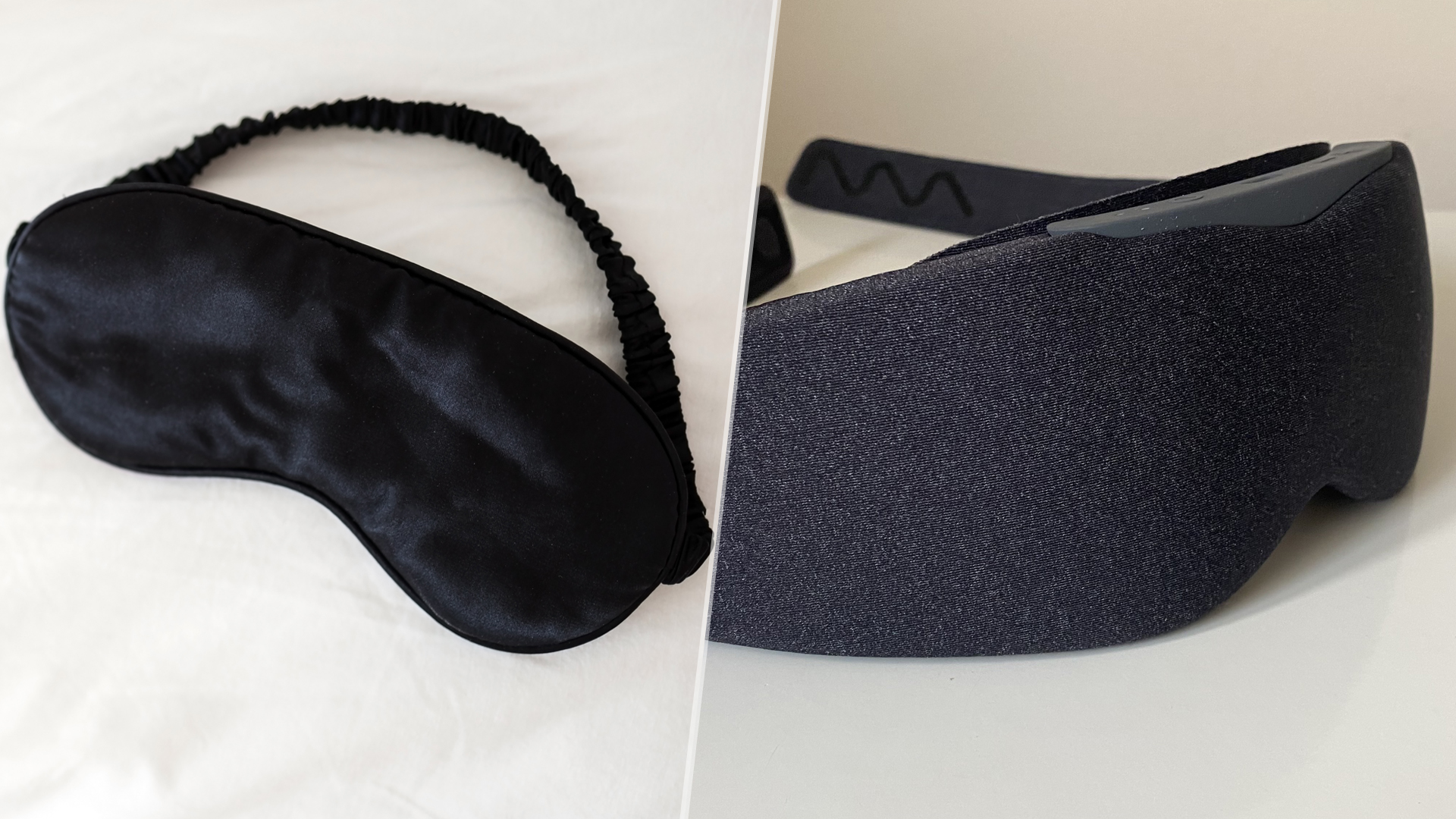
Sign up for breaking news, reviews, opinion, top tech deals, and more.
You are now subscribed
Your newsletter sign-up was successful
I've been using an eye mask every night for over a decade, and at this point, I consider a mask almost as essential for good sleep as my bed. Still, while I recognize it's worth investing in the best mattress, I always opt for cheap eye masks. So when offered the opportunity to switch my basic £6 mask for the £160 Aura smart sleep mask I was curious, but skeptical. How much can you really improve an eye mask?
But the Aura mask isn't any old sleep mask. It's a smart mask, fitted with a built-in light and speakers, connecting to the Aura app via Bluetooth to bring you wind-down meditations and wake-up lights. Head to my Aura smart sleep mask review, to learn more about what it does and how it works. It's expensive for an eye mask, but it's also unique. If you want all the benefits of using a sleep mask combined with a meditation app and a sunrise alarm, there's nothing else like the Aura.
Having used the Aura for several weeks, I can definitely see the benefits of this high-tech upgrade. With that said, I'm not ready to write off the cheap-and-cheerful basic masks I've been using for the past 10 years, especially if all you're looking for is a dark environment to help you drift off. Here's are 5 things I've learned...
#1. The Aura does the basics better
Mostly what I want from a sleep mask is for it to keep things dark and stay on my face – two things my £6 eye mask does pretty well. So I was surprised to find that one of the biggest benefits of the Aura eye mask was just how much it improved on the basics.
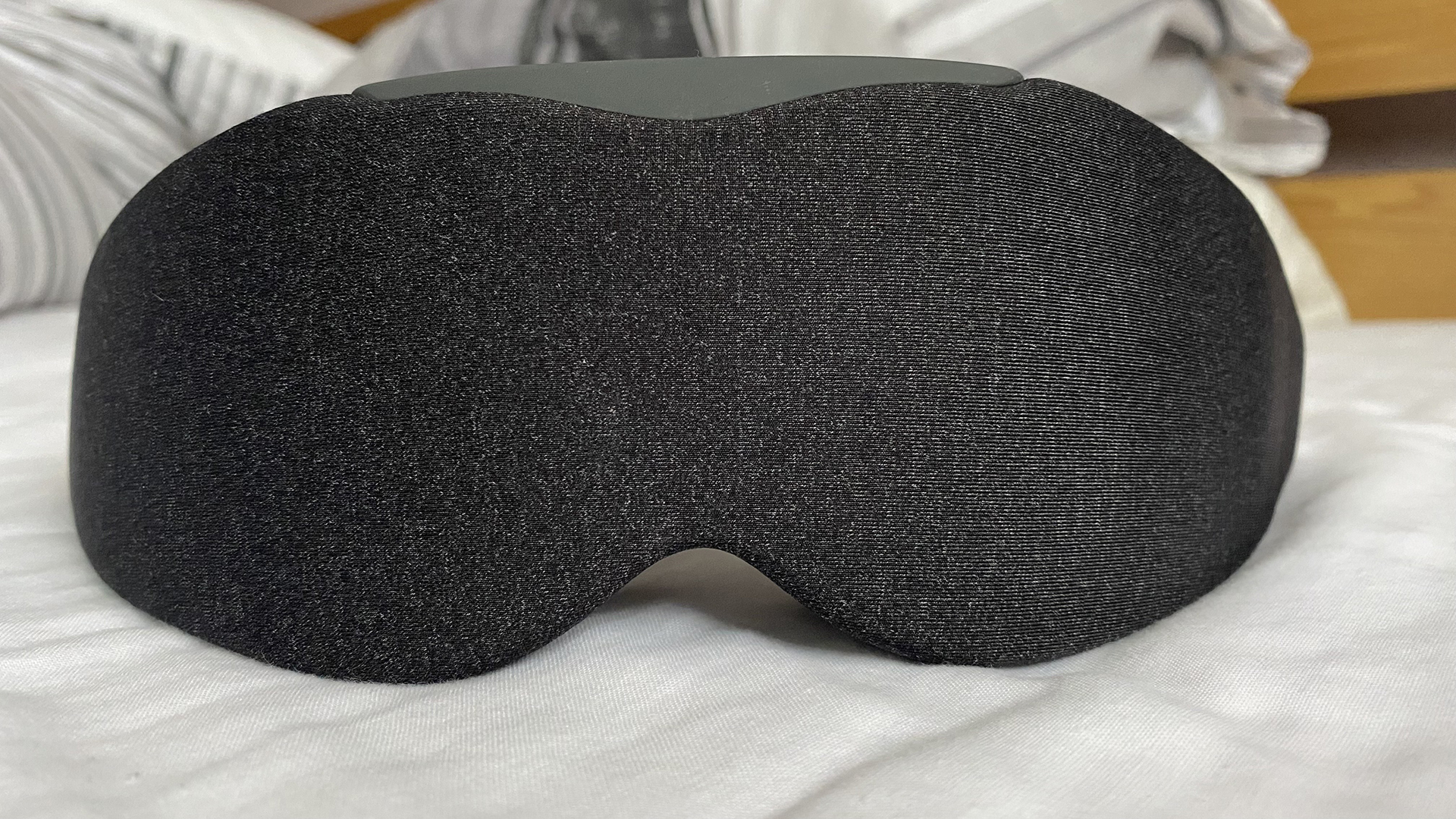
My regular eye mask does a good job at blocking out light. I have an east-facing bedroom that catches the sun pretty early in the summer, and with my eye mask on, I can avoid being woken up two hours before my alarm is set to ring.
However, I didn’t realize how much light got around my mask until I switched to the Aura. This was total darkness. With my regular eye mask, I can notice a difference when I hold my hands in front of my face. With the Aura, if I held a pillow over my face there was no change in the light level. It could have been midnight or noon, and I wouldn't have known.
Compared to the elasticated band of a standard eye mask, the Aura also has a more secure and comfortable fit. The wide straps of the Aura come with a slight stretch, a velcro fastening, and an anti-slip design on the interior, and together these features ensure the fit is just right. Ii was also comfortable from the get go (elastic eye masks tend to be too tight at first) and didn't budge during the night even when I tossed and turned (I've woken up with my normal mask around my neck on more than one occasion).
Sign up for breaking news, reviews, opinion, top tech deals, and more.
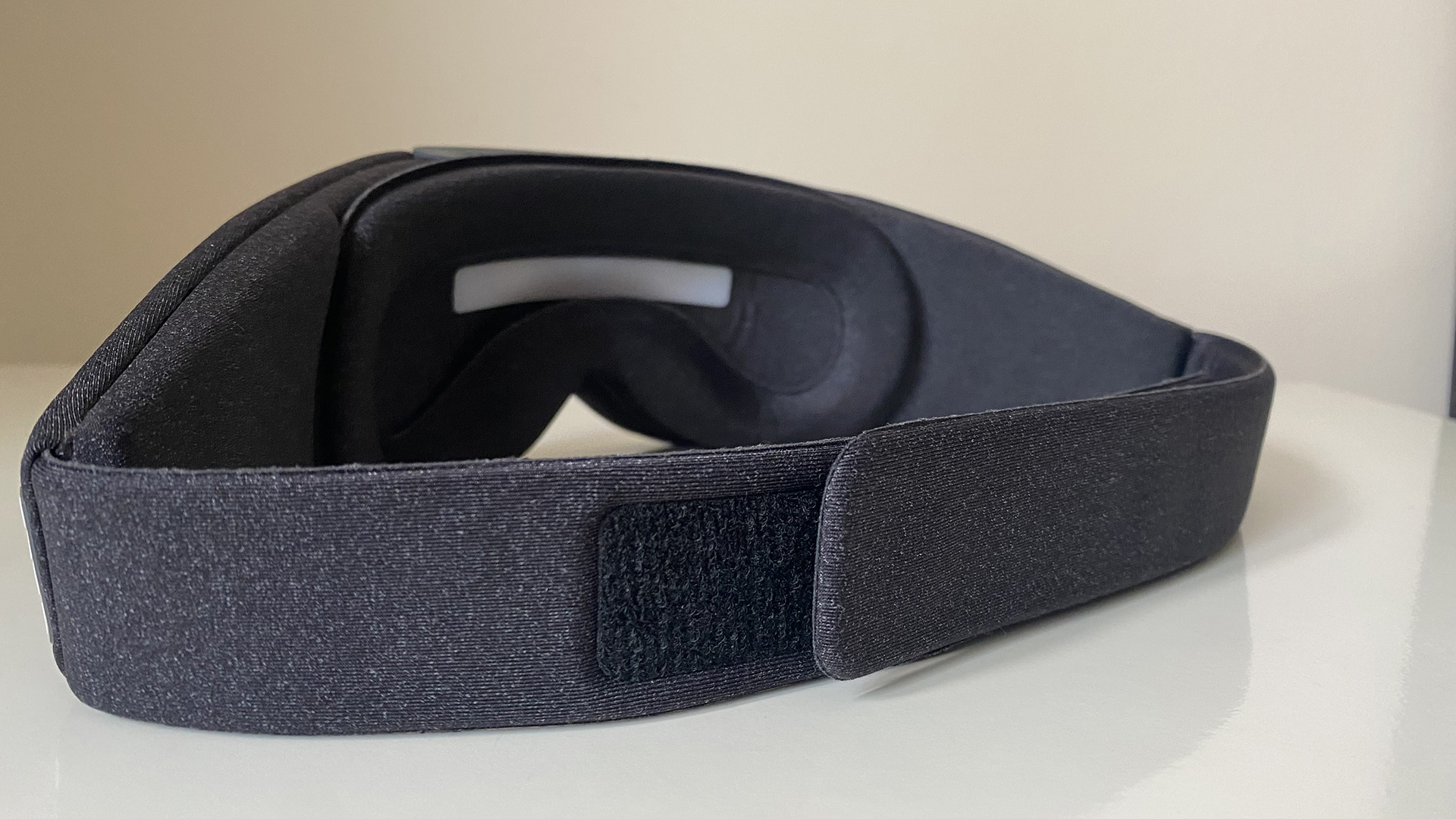
Is this worth the £150 price jump? On its own, no, but it's essential that Aura covers these basics to make the sleep mask functional. The reality is that if you use the Aura overnight, the blackout feature is the one you'll be getting the most use out of. In addition, if the Aura runs out of battery (which I'll cover in more detail below) these basics ensure it remains functional.
#2. In-built light is a major benefit
The main feature of an eye mask is to block out light, a feature I highly appreciate at 5am when the sun floods my east-facing bedroom. But at 7am, when I need light to indicate to my body clock it's time to wake up, this blackout is less desirable. Until now, the only way to deal with unwanted darkness has been to remove my mask when my alarm goes off, press snooze, and doze a few more minutes in the day light.
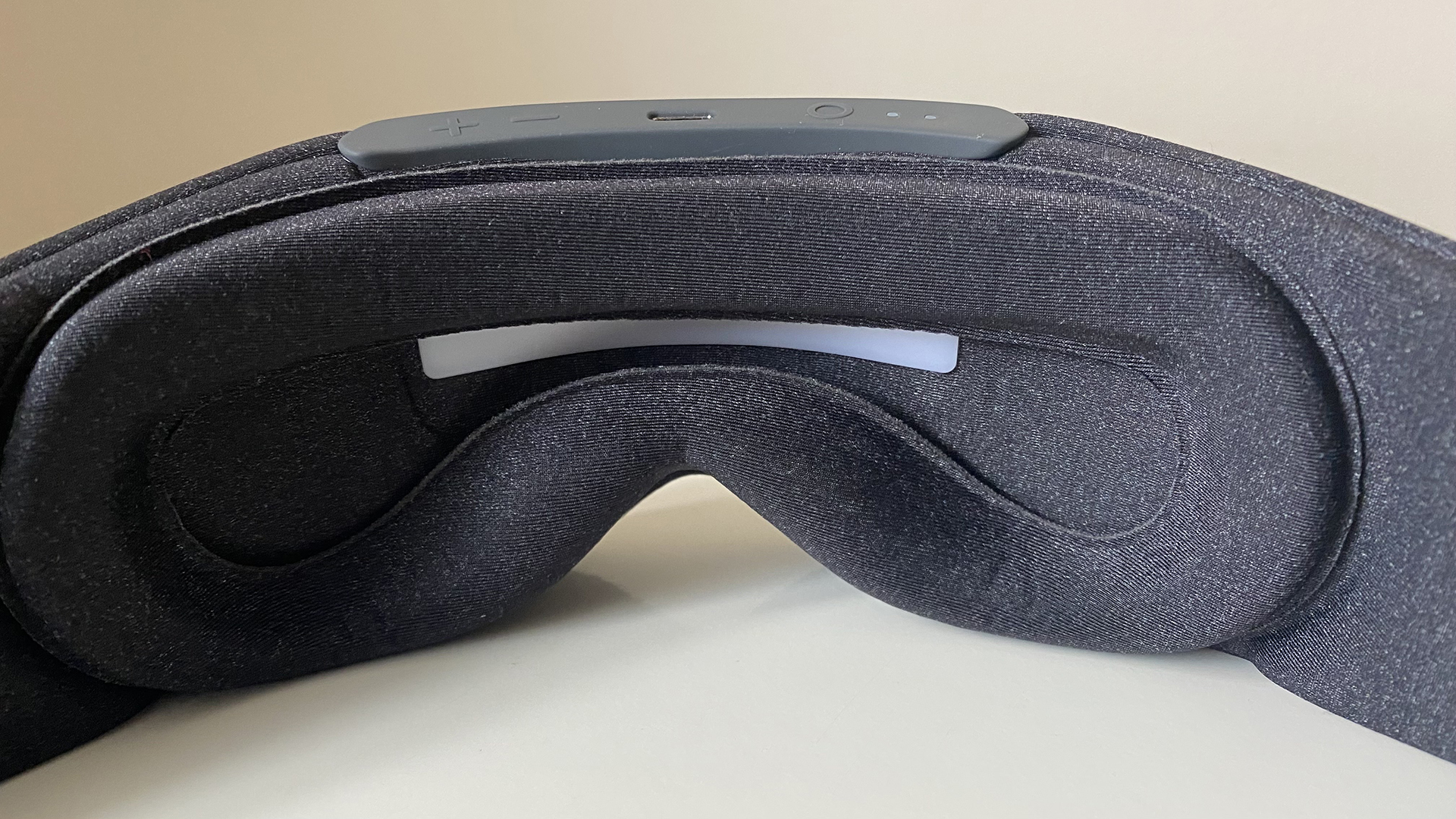
The Aura, however, neatly navigates the entire problem with an efficient solution. Fitted with an internal LED light, the Aura slowly increases brightness just before your alarm is set to sound, for a natural feeling wake-up similar to the best wake-up lights. While it can't entirely match the sunrise, it's significantly better than the total darkness I usually get when waking up with an eye mask. And because the light is determined by my alarm, it doesn't wake me up before I'm ready (something I can't say about the sun).
By fitting this light, Aura has taken one of the biggest downsides of an eye mask – total darkness in the morning – and turned it into an advantage. With the wake-up light, I had a gentle brightness kicking my body into gear whenever I wanted to get out of bed, and not a minute before.
#3. The sweaty head problem got worse
A sweaty head is a typical downside of the eye mask, and while the Aura can improve on a standard mask in a lot of ways, this is still an issue. If anything, the Aura makes overheating worse. Bigger and bulkier than your usual sleep mask, the Aura adds extra fabric to my face in a way that's particularly noticeable on warm nights.
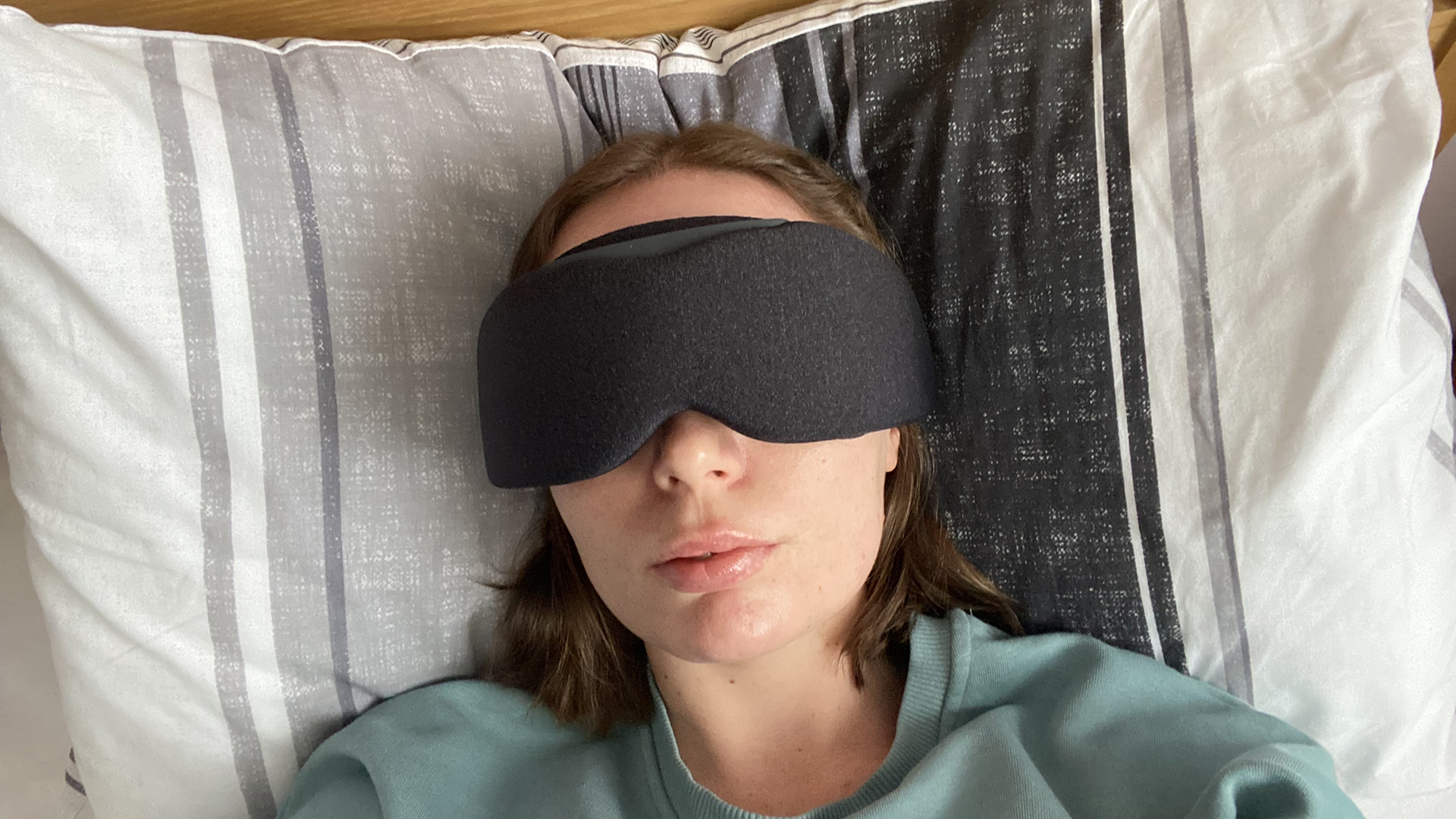
If you struggle with the night sweats, this is going to be a major disadvantage. Instead of the Aura, you might want to consider a fabric upgrade – a breathable and moisture wicking silk sleep mask can help keep you sleep in hot weather. Otherwise, if you want to use the Aura, expect a few sweaty mornings (and maybe think about investing in one of the best cooling mattresses).
#4. An eye mask can be part of your sleep routine
Putting on my eye mask was always the last thing I did before going to sleep and while I recognized it was essential to my sleep hygiene, I wouldn't have considered it part of my bedtime routine.
But the Aura eye mask makes itself part of your bedtime routine. The built-in speakers play your choice of wind-down meditations and white noise, for an immersive experience beneath the mask. Used in bed, it's great for people like me who struggle with the transition from 'awake' to 'ready for sleep'. You're essentially being forced to into a calm, relaxing headspace.
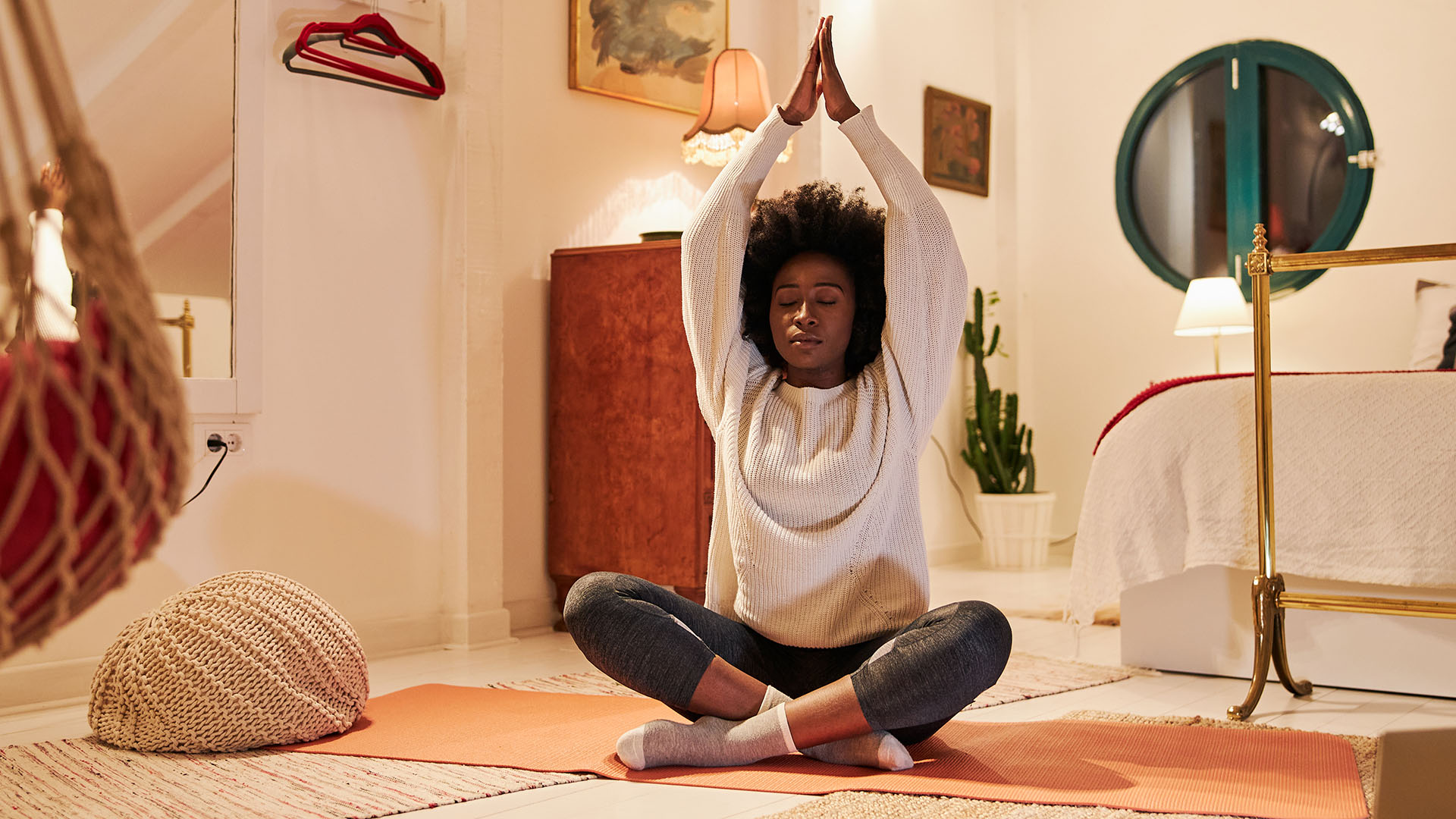
With the Aura on, you can't do anything but pay attention to what's happening inside the mask. And because of that total blackout and secure fit, you have to make a conscious decision to remove the Aura. With a normal sleep mask, it's so easy to lift the corner, take a quick peak at your phone, and expose yourself to blue light.
Before the Aura, I thought the only role my sleep mask played in my rest was to block out light. The Aura shows that an eye mask can contribute more than just a dark environment, especially for those who might find stress or anxiety keeps them awake (many of the meditations are focused on achieving a calm mind).
#5. Charging is a pain
To use the Aura sleep mask properly, you need to charge both the mask itself and your phone (for access to the Aura app). A basic eye mask never needs to be plugged in – something I hadn't considered an advantage until I forgot to charge my Aura.
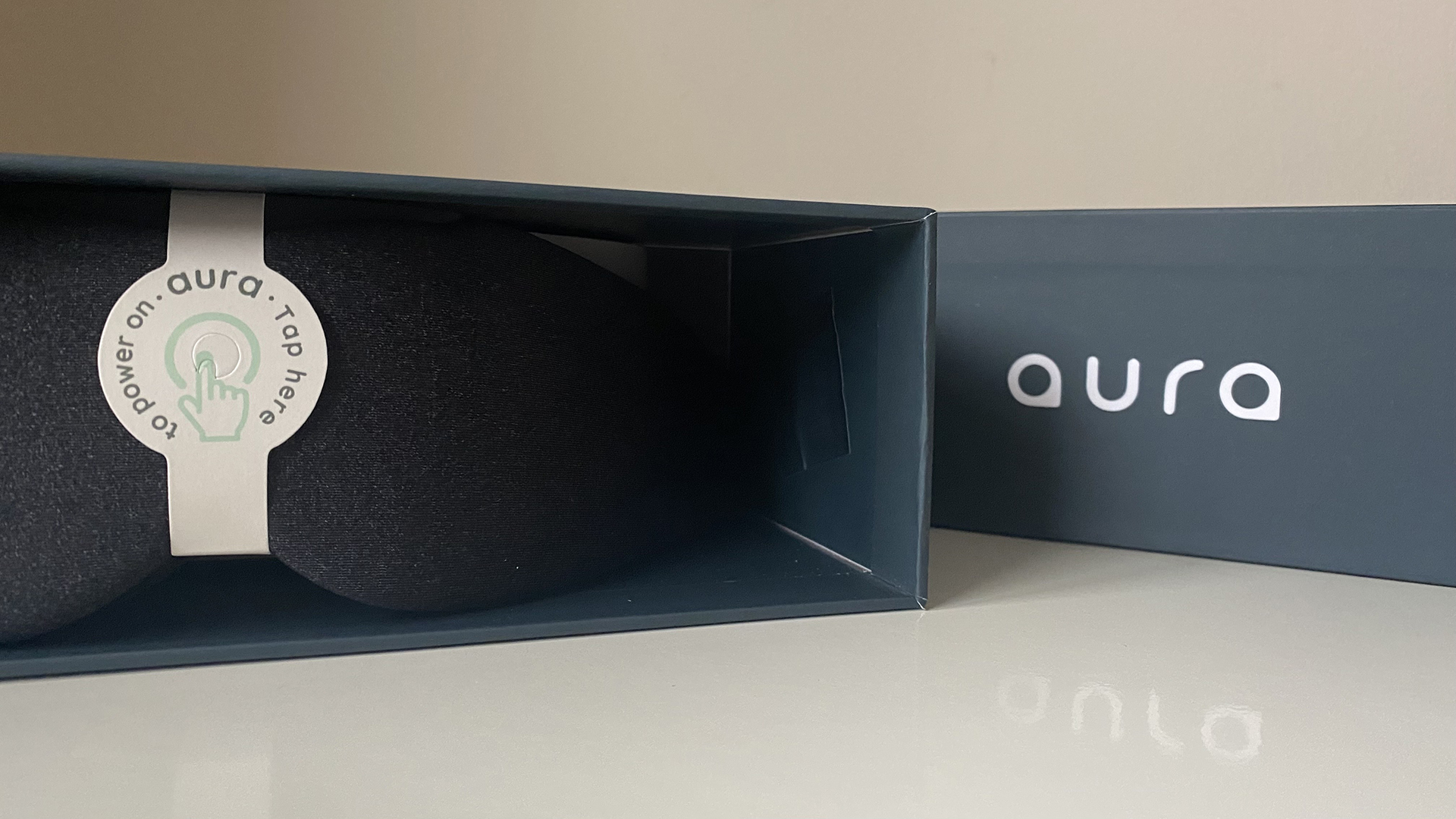
Aura does inform you of the exact battery life when you connect to the app, and I highly recommend checking this when you wake up in the morning. It's very easy to underestimate how much battery you need to get through the night, which is I learned the hard way when the mask died at roughly 4am one morning.
The Aura alerts you when it's powering off and that's not something you want to hear in the midst of your dreams. But it's better than not being informed, and only discovering the mask has shut down when you aren't woken up. Luckily, when it happened to me, I had set my phone alarm to ring a few minutes after the (presumed) Aura alarm, so the loss of power wasn't a huge issue. However, having had it happen once, I can't bring myself to use the Aura without a back-up alarm. Just in case.
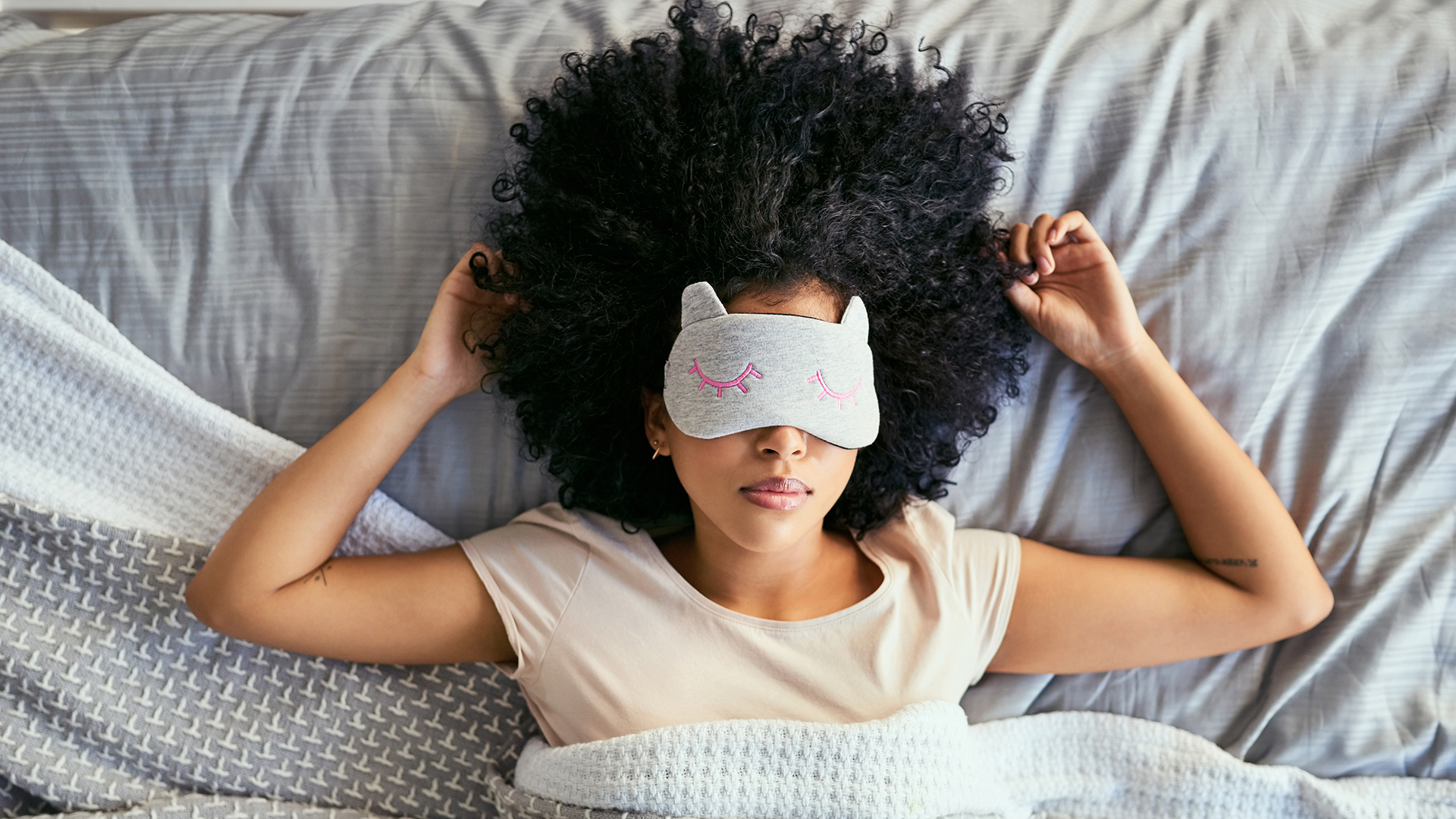
Without any power, the Aura is still useful as an eye mask (see the total blackout mentioned above). However, it loses a huge amount of functionality. And while consistent charging is something you'll learn in time, when the Aura loses battery, you miss out on a vital part of your pre-bed routine, plus your morning alarm. And with fewer opportunities to power up (it can't be done overnight because the cable connects to the mask) charging becomes a habit you need to develop fast.
It it worth upgrading your sleep mask?
I'm going to cop out here and say yes and no. It's a major price jump from a simple sleep mask to the Aura smart mask, but you also get a lot of unique benefits, including the speakers and wake-up lights. And the Aura also has the advantage of doing the basics better, which means you're still getting total darkness and an improved fit.
However, if the blackout effect is all you're after, a basic eye mask is almost as good as the Aura and significantly cheaper. Plus, you don't have to worry about charging it. And it won't ever run out of battery when your alarm is set for early the next morning.

Ruth is TechRadar’s Sleep Writer. She’s here to help you find the perfect sleep setup for your budget and personal preferences. As well as keeping a keen eye on everything that’s going on in the world of mattresses, she regularly speaks to experts to help you learn how to improve your sleep habits, whether that’s by debunking sleep myths or explaining the science behind it all. Prior to joining the TechRadar team, she wrote features and product guides for new parents hoping to get a decent night's sleep, as well as writing for a variety of online spaces.